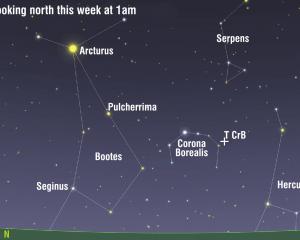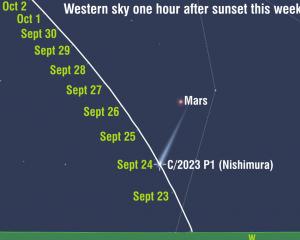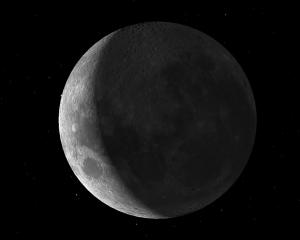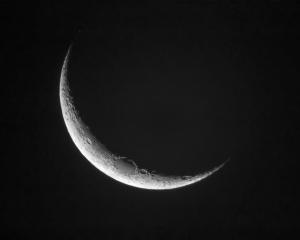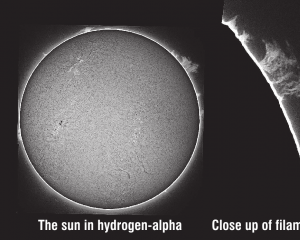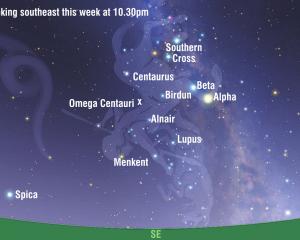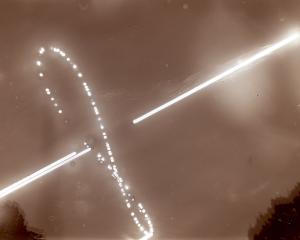On February 1, the remnants of Tropical Cyclone Fehi combined with a king tide to create havoc across New Zealand.
One unfortunate consequence of the storm was severe damage to ''The Mascot'' boatshed on Hoopers Inlet, one of my favourite night-sky viewing spots.
Late last week, the prospect of a particularly clear, calm night drew me back to Hoopers Inlet. While there, I decided to take some pictures of the boatshed before it disappears beneath the waves (hopefully to be repaired in due course).
Once home, going through my pictures, I noted they contained some satellite tracks. As is my habit, I sought to identify these artificial interlopers. The first track turned out to be Cosmos 2084, a Russian early-warning satellite launched in 1990.
The second trail, barely visible as a series of dim flashes, was from a satellite launched earlier this year. In fact, having carefully checked (using the www.heavens-above.com website), I'm pretty sure the flashes were from ''Humanity Star'', one of the four satellites launched by Rocket Lab's Still Testing electron rocket on January 21.
I have mixed feelings about Humanity Star. On the one hand, I am in awe of Rocket Lab's stunning achievement. Launching Still Testing gave New Zealand entry into the exclusive club of less than a dozen countries that have launched satellites into orbit.
On the other hand, as an astronomer with a deep love of the night sky, I find the prospect of Humanity Star and what might follow it into space somewhat depressing.
While a single small satellite deliberately designed to flash for a few months before burning up isn't the end of the world, what's to stop others launching their own, larger and brighter satellites for ''artistic'' purposes?
Indeed, later this year American ''artist'' Trevor Paglin has ambitions to launch a 100-foot ''orbital reflector'' purely as an artistic endeavour. Frankly I fear for the night.
Perhaps I am old-fashioned; but as it's Valentine's Day, I have to say that, in my opinion, love of the night sky doesn't require artificial inspiration from so-called space artists.
-By Ian Griffin

